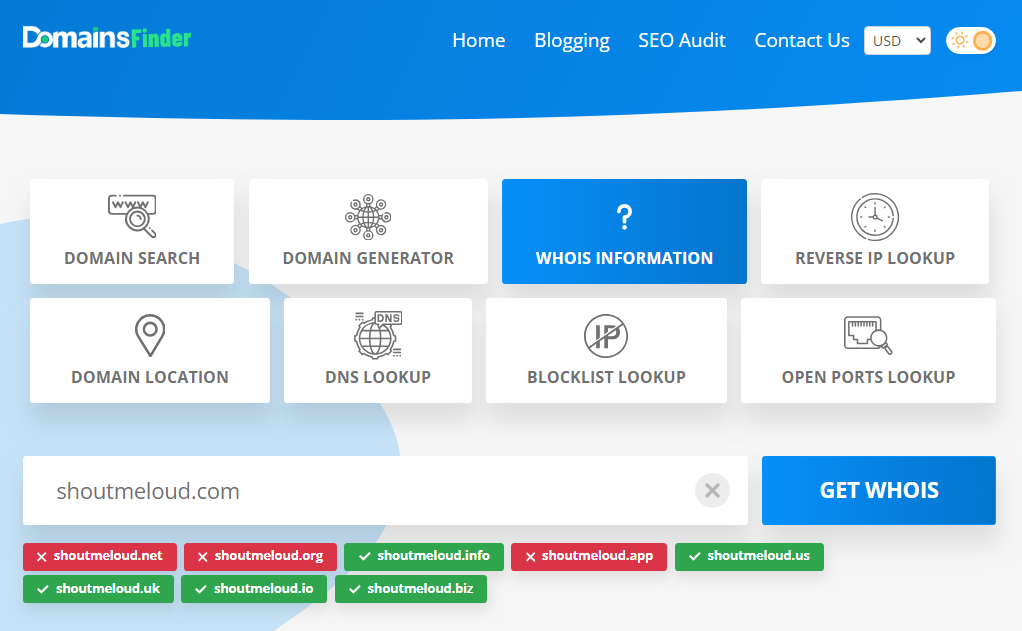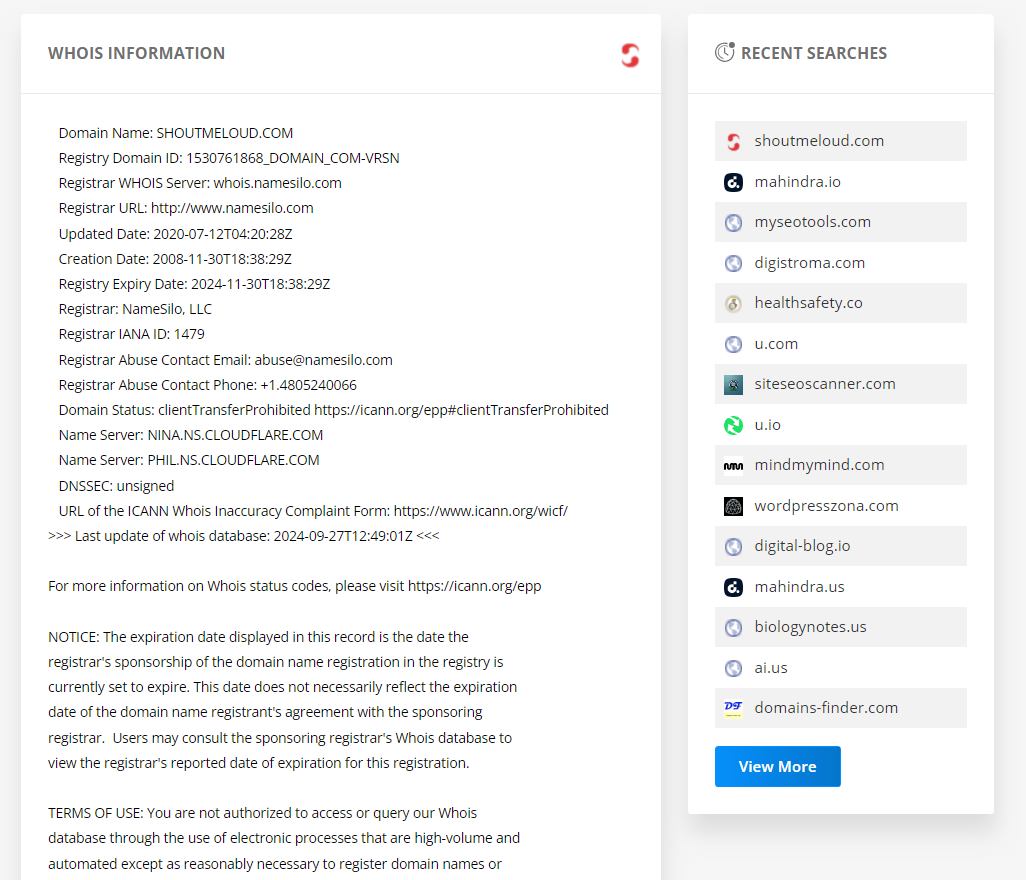Whois Information: A Beginner’s Guide

If you’ve ever registered a domain name or simply searched for one, you’ve likely encountered the term “Whois information.” This information is crucial as it provides essential details about the individual or organization that owns a particular domain name. In this comprehensive guide, we will delve into Whois information, explain its significance, and explore how it can be utilized effectively.
What is Whois Information?
In essence, Whois information is a public record detailing the ownership of a domain name. It typically includes:
- Domain Owner’s Details: The name and contact information of the person or organization that owns the domain.
- Registrar Information: Details about the domain registrar—the company through which the domain was registered.
- Domain Expiration Date: The date when the domain registration is set to expire, which can be crucial for potential buyers or owners.
This data is maintained in a global database accessible to anyone interested in learning more about a specific domain.
Why is Whois Information Important?
Whois information provides valuable insights into the registration details of a domain name, and there are several reasons why individuals and organizations seek out this information. Whether for domain name ownership, website security, or intellectual property protection, accessing Whois data can offer critical knowledge for both business and legal purposes.
1. Domain Name Ownership
One of the primary reasons to access Whois information is to determine the current domain name ownership. If you’re considering purchasing a domain name that’s already registered, the Whois tool can help you identify the owner.
This is especially useful if you’re looking to negotiate a purchase or bid for a domain that fits your brand. Understanding who owns the domain also ensures that the domain name you’re interested in is indeed available for sale or transfer, saving you time and preventing unnecessary disputes.
Additionally, Whois data can reveal the domain registration date and its expiration status, providing useful insights into whether the domain may soon become available.
2. Website Security
Website security is another critical reason to utilize Whois information. If you encounter suspicious or malicious activity on a website—such as phishing attempts or malware—you can use Whois data to identify the domain owner.
This allows you to directly contact the responsible party to address any concerns or report malicious behavior to the appropriate authorities. Cybersecurity teams and investigators often rely on Whois data to trace the origin of harmful activities and take immediate action to mitigate threats.
This data becomes particularly important in safeguarding the integrity of the online ecosystem by identifying domain owners linked to unsafe or fraudulent websites.
3. Intellectual Property Protection
For businesses, intellectual property (IP) protection is vital, and Whois information plays a significant role in monitoring domain names that could infringe on your trademarks or copyrights.
If another party registers a domain that is too similar to your brand or IP, you can use Whois data to track down the owner and take legal action to prevent brand dilution or unauthorized use. Trademark holders can regularly check Whois records to ensure no infringing domains are registered in bad faith.
By identifying and addressing these issues early, you can protect your digital assets and secure your brand’s online reputation.
4. Research and Analysis
Web developers, digital marketers, and SEO professionals often use Whois information for research and analysis. By studying Whois data, you can gain insight into your competitors’ domain ownership strategies, uncover patterns in domain registration, and identify trends in specific industries.
For example, knowing the domain history of a competitor can provide valuable context for how they have built their online presence and whether they own multiple domains linked to their brand.
Researchers can also use Whois data to analyze domain age, identify expired domains for potential acquisition, and track changes in domain ownership over time.
5. Legal Compliance and Accountability
In some cases, Whois information can also assist in ensuring legal compliance and holding domain owners accountable. Regulatory bodies and law enforcement agencies may use Whois data to verify domain ownership when investigating online fraud, copyright infringement, or other illegal activities.
Similarly, organizations that operate websites must often adhere to specific domain registration guidelines, and Whois records provide a transparent way to ensure that these regulations are being followed.
Transparency in domain ownership helps maintain accountability and prevents the misuse of domains for illicit activities.
Whois information is a crucial tool for understanding domain ownership, protecting intellectual property, ensuring website security, and conducting competitive research. Whether you are looking to purchase a domain, safeguard your brand, or conduct industry analysis, Whois data provides essential insights into the ownership and status of domain names, making it an invaluable resource in today’s digital landscape.
How to Access Whois Information
Accessing Whois information is relatively straightforward. Here are some methods:
- Whois Lookup Tools: Many online tools allow you to enter a domain name and retrieve ownership information, registrar details, and more. These tools are user-friendly and provide quick access to the data you need.
- Domain Registrar Websites: Most domain registrars offer access to Whois information directly through their platforms. Simply log in to your account or contact customer service for assistance.
- Our Whois Information Tool: You can try our Whois Information tool to conveniently access the details you need. Just enter the website URL in the search box and hit on “GET WHOIS.”

Now you will get the complete WHOIS information of the website.

Whois Privacy Protection?
While Whois information is a valuable resource, the public availability of personal information can raise privacy concerns. To address this, many registrars offer Whois privacy protection services.
With Whois privacy protection, your personal information is replaced with the registrar’s contact details in the public Whois record. This helps safeguard your privacy and reduces the risk of unwanted contact from spammers or other unsolicited parties.
Frequently Asked Questions (FAQs) on Whois information tool
What exactly is Whois information?
Whois information is a public record that provides details about the ownership of a domain name, including the owner’s contact information, registrar, and expiration date.
How can I access Whois information?
You can access Whois information using online Whois lookup tools or through your domain registrar’s website.
Is all Whois information public?
Yes, most Whois information is publicly accessible. However, individuals can opt for privacy protection to keep their personal details confidential.
Why should I use Whois information?
Whois information can help you verify domain ownership, assess website security, and monitor intellectual property rights.
Can I hide my personal information in Whois records?
Yes, you can use Whois privacy protection services offered by domain registrars to conceal your personal information from public view.
Conclusion
Whois information is an invaluable tool for anyone involved in domain name registration, ownership, or management. Whether you are a business owner, digital marketer, or website administrator, the ability to access Whois data can provide critical insights and benefits. From negotiating a domain name purchase to protecting your intellectual property and addressing potential website security issues, having access to ownership information can be highly advantageous. Understanding who owns a particular domain enables you to take proactive steps in managing your online presence and ensuring that your brand remains protected in the digital space.
Moreover, using Whois information allows you to maintain accountability and transparency when conducting domain research. This can help identify fraudulent or malicious activity, giving you a direct means to contact domain owners to resolve disputes or report issues. In competitive industries, Whois data also provides a valuable tool for conducting market research, enabling you to track domain trends and ownership patterns that can guide your strategic decisions.
However, while the benefits of Whois information are significant, it’s essential to recognize the potential downsides of having your personal information publicly accessible through Whois records. The public nature of Whois data means that personal details such as your name, address, email, and phone number could be exposed to anyone performing a lookup.
This exposure may lead to unwanted spam, identity theft, or privacy concerns. If you value your privacy, you should look into the Whois privacy protection services (also known as private registration or domain privacy) that the majority of domain registrars provide. These services replace your personal information with the registrar’s contact details, ensuring that your sensitive information remains secure while still allowing legitimate parties to contact you.
In conclusion, Whois information is a powerful resource for enhancing domain management, improving security, and protecting your brand identity. By leveraging this data while being mindful of potential privacy risks, you can maintain better control over your domain assets and ensure that your online presence is both secure and strategically positioned for success.
Discover more from Domains Finder
Subscribe to get the latest posts sent to your email.


